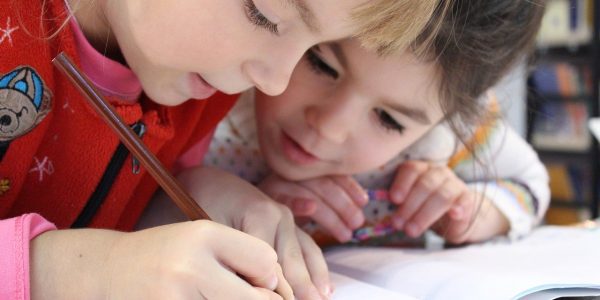The teaching of grammar in primary schools in England (a key feature of England’s national curriculum) does not appear to help children’s narrative writing, although it may help them generate sentences, according to new UCL-led research.
The study, which is funded by the Nuffield Foundation and co-authored by researchers from UCL and the University of York, is the first randomised controlled trial worldwide to examine how Year 2 pupils’ writing (six to seven-year-olds) might benefit from grammar teaching. The research assessed the impact of a new grammar teaching intervention called Englicious.
Seventy Year 2 teachers in 70 primary schools, and 1,736 pupils, were recruited to the study. The teachers and their pupils were allocated at random to either receive the Englicious intervention programme or to have their usual grammar teaching. The results showed that while children who followed the programme had encouraging results when it came to generating sentences, there was no statistically significant improvement in their narrative writing.
Children’s writing was tested by a narrative writing test and a sentence generation test before and after the end of the grammar intervention. The teachers’ lessons in the Englicious classes differed from those in the ‘business as usual’ control group classes because they linked the grammar teaching more closely with the pupils’ practising of writing – a feature of the Englicious approach.
Professor Dominic Wyse (IOE, UCL’s Faculty of Education and Society), lead author said: “The lack of impact of grammar teaching on pupils’ narrative writing raises questions about the extensive grammar specifications that are part of England’s national curriculum.
“Currently, the content of England’s national curriculum requires children aged six to seven to be taught grammatical terms such as: noun phrase, statement, command, and tense. Older primary school children have to learn terms such as subordinate clause; adverbial; modal verb; active and passive.
“Although teachers praised the Englicious intervention for its hands-on and interactive approach, our results match other experimental trials which do not provide enough robust support for extensive grammar teaching as the best way to improve writing.”
Co-investigator Professor Bas Aarts (UCL English Language and Literature and Engilcious lead) added: “The free resources on the Englicious website did help teachers to deliver the specifications of the national curriculum in an engaging way, and led to a positive effect on children’s ability to generate sentences by combining clauses.
“We would have liked, however, to have seen stronger evidence of the benefits of grammar teaching on children’s narrative writing and more must be done to help children learn to write.”
The authors say their study and previously published research calls into question the current way grammar is specified: they suggest that a review of the requirements for grammar in England’s national curriculum is needed.
They also suggest the curriculum should focus more on what helps children to develop their writing skills at different points in development, focusing on teaching approaches such as sentence-combining, strategy instruction and emphasising the processes of writing.
Professor Wyse added: “The national curriculum needs to reflect robust evidence on what works much more closely. Until an in-depth review of England’s national curriculum is undertaken children are unlikely to be receiving the optimal evidence-based teaching of writing that they deserve.”





































